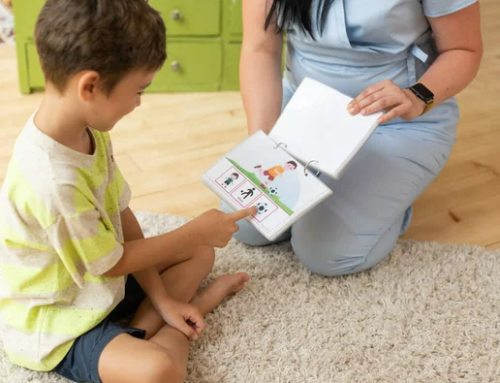The festive period is a wonderful time of year for many. It can also be a very difficult time for some and there is also evidence that many people experience a decline in their well being immediately following the Christmas holiday. So what can you do to enjoy the season and prevent the post-holiday comedown?
Christmas and welcoming in the New Year are celebrated all around the world. It can be a truly joyous time catching up with friends and family, attending events and parties and generally getting into the “festive spirit”. But for some it can also be exhausting, stressful, lonely and over stimulating, particularly if you are a susceptible to low moods or tend to indulge in drinking a little too much alcohol (1). There is also evidence that many people experience a decline in their wellbeing immediately following the Christmas holiday, so it is important to nurture yourself and maintain your wellbeing during and after the festive season (1). To help you take a proactive approach, we have outlined some ideas below for you try so you can enjoy the most wonderful time of the year.
1. Practice gratitude and mindfulness
Practicing gratitude is a great place to start. As a Ferris Bueller said “Life moves pretty fast. If you don’t stop and look around once in a while, you could miss it.” There is nothing too small to be grateful for. It might be your morning coffee, a babies laugh or how quickly the postie delivered your most recent online purchase. You can also let others know the gratitude you are feeling. Good things in life don’t stick in our heads as easily as bad events, so practicing gratitude can help balance out all the negative stuff and help prevent those post-holiday blues.

Practicing mindfulness can keep us grounded so we can truly enjoy the present moment. Try and find little moments throughout the day where you can engage all of your senses and be mindful. Some examples could be mindful driving or mindful eating, watching the kids open Christmas presents or preparing a feast. A bonus of doing things mindfully is your thoughts become quiet so you can’t worry about the future or dwell in the past.
2. Set some boundaries
Being social and spending time with family and friends can be so good for us, but not if you are sacrificing your wellbeing. If you are feeling overwhelmed or know you are going to see a family member you don’t often get along with, what will you do?
Saying no to some things is ok, especially if you are naturally an introvert or empath and require “time in” to refuel your energy. Check in with yourself each day, what are thoughts, feelings and desires? Who is most important in your life, what inspires you and what brings you joy? Having self-awareness can help you decide what to say “yes” to and what to say “no” to. If you need to set a boundary with someone; try to stay calm, be clear and use minimal words.
It is also important to set boundaries with yourself. For example, if you want to participate in many things over the holidays, perhaps you could consider outsourcing the cleaning for a few weeks to a cleaner? Or ask family members to bring a plate to Christmas lunch.
3. Minimise sensory overload
During the festive season there are more sounds, sights, smells and movement more than any other time. This increased stimulation can make some of us feel overwhelmed and anxious. You don’t have to declutter your entire home Marie Kondo style to minimise the overstimulation at this time of the year. Some ideas to nurture our senses include reducing your screen time, setting your Christmas tree lights to a steady glow instead of flickering, limit your trips to the shopping centres, or drive your car with the music turned off. If you are attending lots or parties and events, try to reserve a day following for downtime and recuperation.
What are some other ways you can reduce the stimulation to your senses?
4. Take care of your physical health
Food, sleep and exercise are some of the most useful ways to ground and fuel us. Prioritise getting enough sleep and having a nutritious diet. Prepare a plan that allows you to enjoy the special treats that are available at Christmas time, while balancing them with healthy eating. Enjoy the treats by engaging your senses and eating mindfully. If you are normally good at fitting in exercise each week, make a time to keep this going. If you are catching up with a friend, why not go for a walk or a swim?
Alcohol related illnesses increase over the festive season (1), so limiting drinks and drinking responsibly is important. Take care of your body and it will reward you with plenty of energy.
5. When the festive season is over
Maybe you are a big lover of Christmas, but afterwards experience a comedown. All of the festive things you enjoy are now over or gone and it’s time to go back to work or school. To stay on track, enjoy the memories you made by looking over photos or talking to your family and friends about your experiences. Let the joy you had be something you are grateful for and allow it to inspire you to make more happy memories. It is also a great time to make sure you have lots of fun things to look forward to in the near and distance future, like booking a holiday or staycation!
So take care of yourself and have a wonderful Christmas and New Years!
The team at Beam Health would like to wish everyone a Merry Christmas. Please take care of yourself over the holidays, it’s the best gift you can give yourself and everyone you love.
If you or someone you know are finding the festive period quite difficult, there are some great supports available including:
- Lifeline: 12 11 14
- Beyond Blue: 1300 224 636
- Suicide Call Back Service: 1300 659 467
- Mental Health Line NSW: 1800 011 511
- GriefLine: 1300 845 745
- Men’s Line Australia: 1300 789 978
And as always, in an emergency, dial 000.

Melissa Mehan
References
Sansone, R. A., & Sansone, L. A. (2011). The Christmas effect on psychopathology. Innovations in clinical neuroscience, 8(12), 10.










